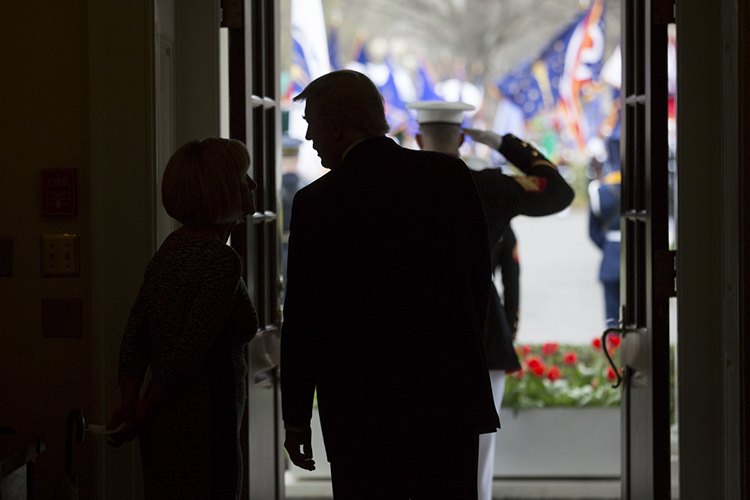Berkeley Talks: Berkeley scholars on the politics and law of impeachment
Robert Reich, a professor of public policy, and Berkeley Law Dean Erwin Chemerinsky discuss what the mechanisms are for removing or sanctioning a president of the United States and what are impeachable offenses
December 6, 2019
Subscribe to Berkeley Talks, a Berkeley News podcast that features lectures and conversations at UC Berkeley.

Robert Reich, a professor of public policy at UC Berkeley, and Berkeley Law Dean Erwin Chemerinsky discussed the Trump impeachment at a Nov. 5 event on campus. (whitehouse.gov photo)
With the 2020 general elections looming, the nominee for the Democratic Party undetermined and a defiant and volatile president at the helm, the impeachment inquiry is heating up. At stake in this topsy-turvy political theater are our democratic institutions, which may be forever altered.
In this Nov. 5 talk for UC Berkeley’s Social Science Matrix event, Erwin Chemerinsky, dean of Berkeley Law, and Robert Reich, a professor of public policy at UC Berkeley’s Goldman School of Public Policy, discuss what the mechanisms are for removing or sanctioning a president of the United States, what are impeachable offenses and how it’s no longer about left vs. right, but democracy vs. oligarchy.
“I think it’s so important that, as the impeachment things go on, the Democrats have a clear but simple message that this is about the rule of law,” said Chemerinsky. “There is a federal law that makes it a crime to solicit or receive foreign benefits with regard to an election campaign. Isn’t that something that President Trump violated with regard to the conversation with the president of the Ukraine? Isn’t it a clear abuse of power for the president to say ‘Before you get your foreign aid, I need a favor, and it is to dig up dirt on my political rival.’ Isn’t that inconsistent with the rule of law?”
“… I don’t know that the rule of law is as powerful an argument any longer,” said Reich. “When so many people feel like the game is rigged, which gets to these two political questions — one, on taxes. It’s undoubtedly true that if your income has stagnated for years, you’ve not had a raise adjusted for inflation, you don’t want to face a higher tax.
“In fact, the tax revolts that swept across this country beginning in the late 1970s really started when middle-class incomes, working-class incomes, started flatlining. But how, to go back to Oliver Wendell Holmes Jr., paying taxes is the sign of a civilized society. You can’t do what you need to do collectively, whether it’s infrastructure or schools. One out of five of our children is in poverty in this country. How can you, possibly the richest country in the world, turn your back on all of that of homelessness? So the question is not so much taxes. It’s who’s going to pay.”
Watch a video of the conversation below.